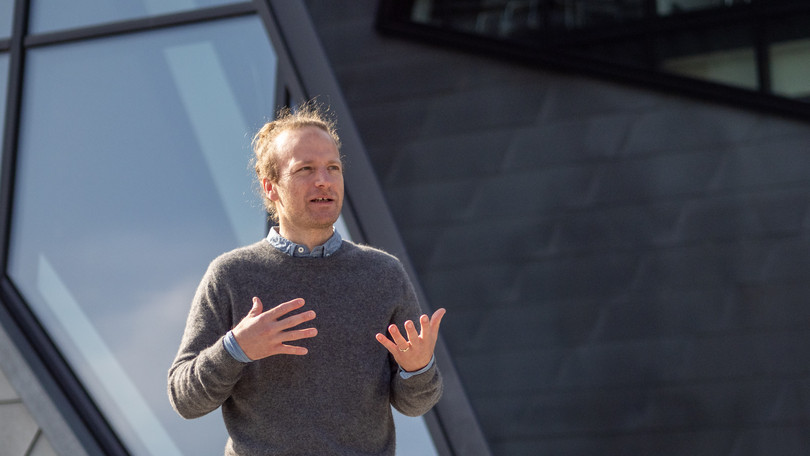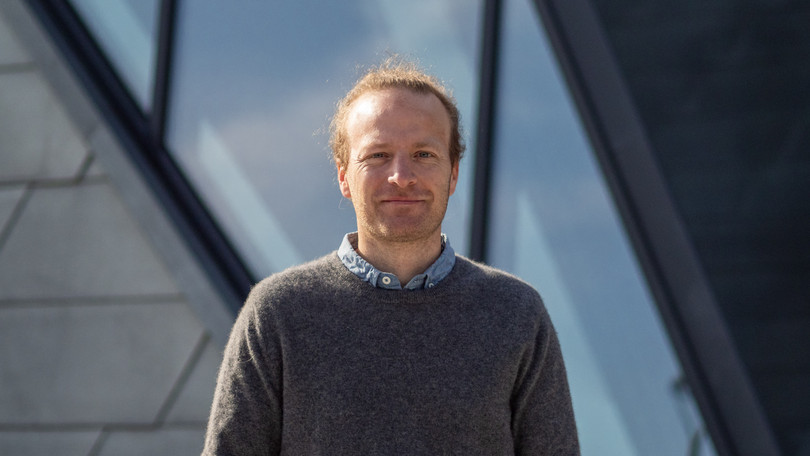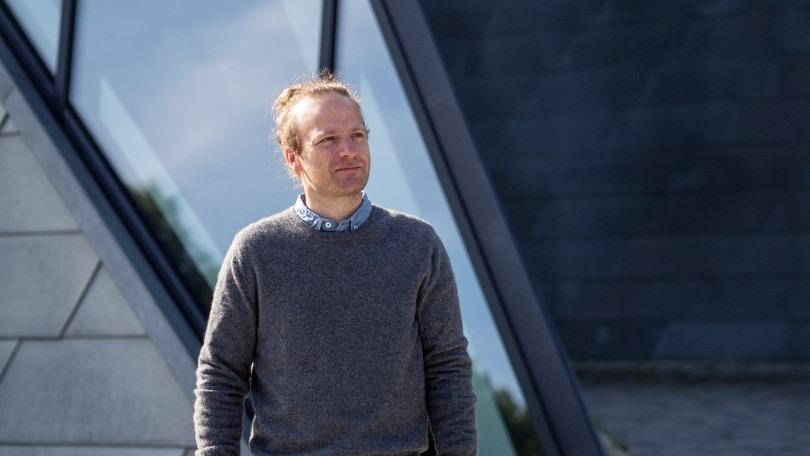New at Leuphana: Prof. Dr Manuel Bohn
"Language means more than what is said"
2023-08-18 The junior professor of developmental psychology researches the psychological foundations of human communication. Working with large data sets and cross-cultural collaborations help him to generalise results.
Language consists of letters, words and grammar. But this is only one part of human communication: "The meaning of language is not reduced to what is said. It is important to communicate it to the other person. Besides language, we also use gestures, looks or simply the context. If you give primates a symbol system, they can't use it like humans. We can put ourselves in the other person's shoes differently than apes do," explains Prof. Dr. Manuel Bohn. He has just been appointed junior professor for developmental psychology. His main interest lies in the psychological foundations of human communication. "My goal is to understand the common and unique aspects of human cognition that enable children to acquire conventional language," explains the researcher. Comparison with primates is important here in order to decide what is specifically human.
At the Max Planck Institute for Evolutionary Anthropology, Leipzig, Manuel Bohn studied the communicative and cognitive abilities of chimpanzees, gorillas, orangutans and bonobos, among others. The great ape facility at Leipzig Zoo, known as Pongoland, was built for the Max Planck Institute. In his doctorate - supervised by Michael Tomasello and Josep Call - Manuel Bohn was already working on social cognition and communication in primates and infants.
During his postdoctoral period, Manuel Bohn did research for two years at Stanford University in the research group of the developmental psychologist Michael C. Frank. "The time was very formative for me. I was able to build up a large repertoire of methods, including simulating cognitive processes using computer models. Michael Frank's working group is also a pioneer in working with large data sets," reports Manuel Bohn.
He himself is part of large research networks that bundle and evaluate data from various projects, such as "ManyPrimates". "Pongoland is one of the largest primate research centres in the world. Yet there are just four species and forty animals there. In order to make robust scientific statements, large samples are needed. These can often only be achieved through collaborations."
The background to working with large data sets is also the crisis of confidence in empirical psychology: results of past studies could not always be replicated. In some cases, new fields of research were founded on the basis of very small samples. However, global cooperation between researchers does not only mean more robust results. The data sets can also be used to test cross-cultural hypotheses: "No matter where people grow up, they all generally become part of a society and acquire language," says Manuel Bohn.
Experimental Developmental Psychology investigates when certain cognitive phenomena occur in children. The junior professor relates development to everyday experience: "I want to know under which conditions children take certain developmental steps," explains the researcher. In a current research project, he is cooperating with kindergartens and daycare centres. "We have developed a camera waistcoat that films the children's environment," explains Manuel Bohn. The problem: hours of videos have to be evaluated. "We are now working with computer experts who programme an AI to filter out the relevant parts," explains Manuel Bohn. The development of new methods is another focus of his work.
Prof. Dr Manuel Bohn graduated with a Master's degree in psychology from the University of Vienna in 2013. In 2016, he received his PhD at the Max Planck Institute for Evolutionary Anthropology, Leipzig, Department of Comparative and Developmental Psychology, where he remained as a postdoc until 2017. From 2017 to 2020, he was a Marie Skłodowska-Curie Fellow at the Language and Cognition Lab at Stanford University, USA and at the Leipzig Research Center for Early Childhood Development. Until his appointment at Leuphana University of Lüneburg, Manuel Bohn was a group leader (Senior Scientist), Department of Comparative Cultural Psychology, Max Planck Institute for Evolutionary Anthropology, Leipzig.



